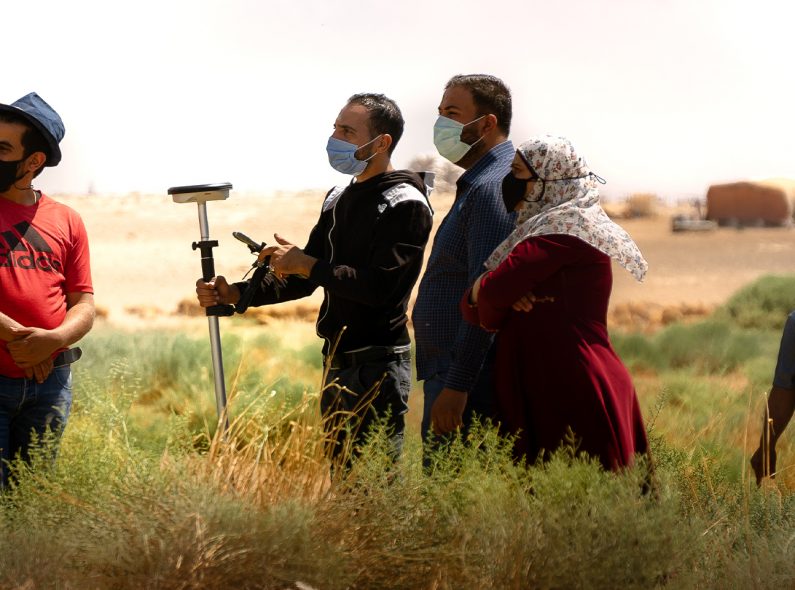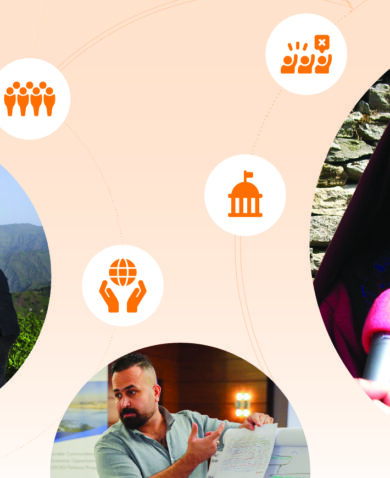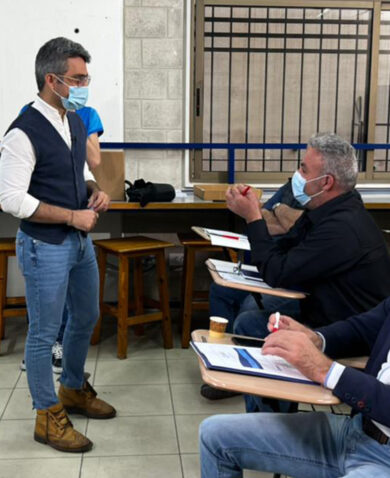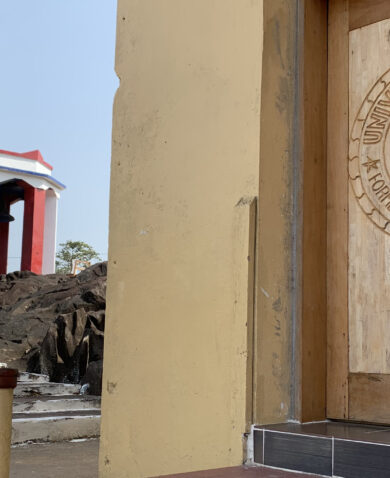
3 Lessons from Jordan on Using Asset and Liability Management to Encourage Local Economic Development
June 7, 2021 | 5 Minute ReadSharp increases in population growth globally are stretching local governments tasked with providing services to their constituents. How can municipalities pay for this dramatic increase in service and the infrastructure needed to attract new businesses and spark local economic development?
Introduction of key concepts and Jordanian context
Municipalities own many assets that residents and businesses depend on for critical services. We all rely on drinking water which is treated and flows through municipal pipes to our homes. We depend on our trash being collected and disposed of in the municipal landfill, and the trucks that collect our trash drive on municipal roads. These assets are essential to the life of a municipality and to the local economy. Asset and liability management (ALM) is an approach that enables municipal officials to maximize the value of their existing assets to address budget shortfalls and facilitate local economic development (LED). Municipal assets are also critical since most municipal taxes are derived from land-value capture, which enables municipalities to tap into the increase in value of privately owned land that results from public investment in urban infrastructure.

However, to make effective use of ALM for budget maintenance and ultimately LED, municipalities need to strengthen their governance framework and their municipal finance systems. In Jordan, the national government has become increasingly aware of the importance of LED to catalyze the aspirations and meet the needs of its citizens. However, the operating environment in Jordan—due to the relatively restrictive governance systems in place, economic challenges, and regional volatility—has complicated the degree to which municipal governance can easily facilitate LED. As such, the USAID/Jordan Cities Implementing Transparent, Innovative, and Effective Solutions (Jordan CITIES) project — implemented by Chemonics — provides vital technical and material resources to help optimize local governance mechanisms that maximize local assets and manage liabilities for economic vitality on the municipal level. Recognizing the importance of this approach, Jordan CITIES operationalized ALM to support targeted municipalities in managing debts, enhancing municipal revenues, collecting taxes and fees, and developing and installing a “municipal fixed assets automated system” for Jordanian municipalities, in tandem with the Ministry of Local Administration (MOLA) as part of its 2021-2024 Strategic Plan for LED.
Key Lessons and Recommendations
In their efforts to enhance LED through more effective local governance, Jordan CITIES has learned three valuable lessons for bolstering municipal financing:
1. Optimize financing and alternative resource mechanisms. Accessing nontraditional means of financing is an essential component of LED and ultimately closing the infrastructure financing gap. The Jordan CITIES project worked with municipal officials to maximize the amount of money it brings in by improving municipalities’ ability to value property and assess, bill, collect, and when possible, expand local taxes. In addition to optimizing the taxing process and strategizing ways to enhance the authorities of municipal officials, the Jordan CITIES project supported local officials to manage their assets and liabilities more effectively through several different approaches, including:
- Increasing municipal capacity to identify marketable projects with a high probability of completion and sustainability at a cost commensurate with the projected financial benefits derived from the project;
- Equipping local and national governments to pursue prudent, efficient financing of infrastructure and ensuring the private sector is meaningfully engaged in the processes for setting policies and defining goals. From public private partnerships (PPPs) for service delivery to co-developing financing regulations and policies, engaging private sector on various facets of municipal finance can reinforce ALM efforts and in turn enhance LED.
- Reforming policy to streamline local jurisdictions’ access to equity and debt capital on commercial terms for economic infrastructure; and
- Improving the ability of public and private sector decision-makers to coordinate and access information about development finance through web-based platforms.
By first maximizing the amount of money they can legally collect and also encouraging greater involvement of the private sector through better policy and incentives for private investment, municipal officials can ensure they have the resources to deliver on their mandate while still encouraging economic growth.
2. Systematize financial accountability and clear communication. Efficient tax and revenue collection should be combined with financial reporting, community engagement, and a strategic communication strategy. Financial reporting facilitates the government’s duty to be publicly accountable and should enable users to interact with accountability data and resources. For example, this type of accountability can manifest through municipal financial reporting practices that include information to determine whether current year revenues are sufficient to pay for the current year’s expenditures. Jordan CITIES promoted similar accountability measures which often resulted in encouraging citizens to pay liabilities (tax and fees) to municipalities, which improved tax compliance and helped bridge the financing gap for service delivery and LED.
3. Maximize the enabling environment for LED. For Jordan’s municipalities to attract the private investment they seek to enable LED, it is essential that they continue to implement transparent governance systems backed by proportionate strategic planning and regulation, which offers greater comfort to investors. These foundations, laid by Jordan CITIES, need to be enhanced with PPP models that suit the Jordanian context and the priority sectors—energy, transportation water, agriculture, and environment—which can give investors the returns they need for initial and subsequent investments. Additionally, municipalities must continue to refine their image. Their perceived poor financial condition and weak managerial capacity often prevents the participation of the private sector in LED and thus needs to be addressed through targeted, sector-specific strategic communications initiatives. Municipalities also need to continue updating and improving their tax and non-tax collection strategies to boost revenue while rationalizing expenditures. This includes updating taxpayers’ assessments and maintaining open channels with citizens through participatory budgeting and financial reporting. Additionally, municipalities need to continue building the capacity of their human resources for ALM by updating systems and procedures to ensure that existing assets are properly maintained, capital development plans are based on life-cycle costing, and that municipal loans and other debts are effectively managed through the use of debt management software.
As demonstrated in Jordan, the CITIES project operationalized the ALM approach to strengthen the LED enabling environment throughout the country. The project adapted the ALM approach to 1) explore financing and alternative resource mechanisms, 2) ensure clear, inclusive, and transparent communication for tax and revenue collection, and 3) develop a comprehensive approach for enabling LED. For strengthening local governments to be as solvent and effective as possible—especially amid challenging global population trends and a pandemic—while maintaining a commitment to public accountability, interventions must focus on supporting effective ALM, involving citizens, and proactively engaging the private sector to spur LED.
*Banner photo caption: A survey team of Al-Dhulail municipality in Jordan take precise measurements for the area of Wadi Al-Dhulail for their Master Development Plan, which is being developed jointly with the municipalities of Al-Hallabat and Al-Khalidiyah in cooperation with the Jordan CITIES project.
Posts on the blog represent the views of the authors and do not necessarily represent the views of Chemonics.











































